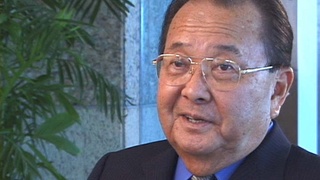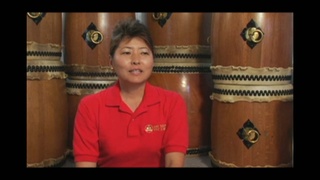Interviews
Feeling free and accepted in Hawaii
When I was living on the mainland, particularly up to this point, to about 1945. I had a good life, I felt. But when I went to Honolulu, I felt for the first time, free. What do you mean by free? Well, what I meant by free is that living on the mainland, I never knew when somebody is going to shoot an arrow at me, an insult, a barb, a comment, something, calling me Jap, “you’re not welcome here,” “what are you doing here?”
In Hawaii, I felt fully accepted. And so I thought, “Wow! This is a wonderful culture here.” Then I said there is a soul spirit, an aloha spirit, of being friendly, everybody is being welcome. It’s a good feeling of openness. They’re not afraid to talk about, what we used to call, “sacred cows,” and they are very open. They may be prejudice, but they are open about it, they are honest about it, and I like that honesty. Therefore, I felt this is a wonderful culture, that I am enjoying, and I felt I could grow in this kind of culture, and I liked it.
Date: March 4, 2005
Location: California, US
Interviewer: Florence Ochi, Art Hansen, Yoko Nishimura
Contributed by: Watase Media Arts Center, Japanese American National Museum










